Biometrics
Filter resources
-
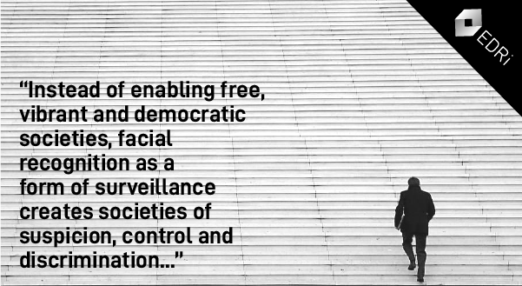
IBM’s facial recognition: the solution cannot be left to companies
On 8 June 2020, IBM’s CEO announced to the US Congress that – on the grounds of “justice and racial equity” – the company would “sunset” its “general purpose” facial recognition technologies. EDRi has addressed the company through a letter, but IBM's response suggests the organisation is motivated by public relations, instead of fundamental rights.
Read more
-
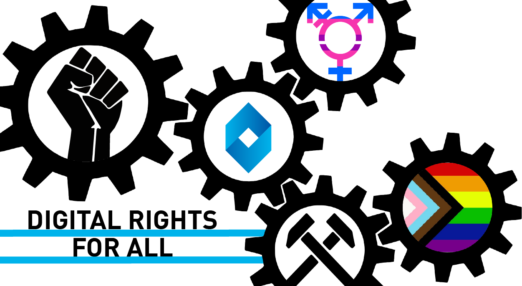
Digital rights for all
In this article we set out the background to EDRis’ work on anti-discrimination in the digital age. Here we take the first step to explore anti-discrimination as a digital rights issue, and then, what can EDRi do about it? The project is motivated by the need to recognise how oppression, discrimination and inequality impact the enjoyment of digital rights, and to live up to our commitment to uphold the digital rights of all.
Read more
-
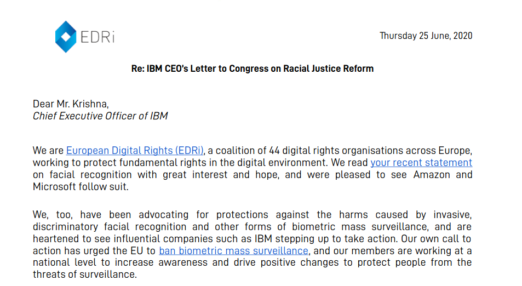
Open Letter: EDRi calls on IBM to clarify stance on facial recognition
On 25 June, EDRi sent an open letter to the CEO of IBM in response to their 8 June statement on racial equality and facial recognition in the US.
Read more
-
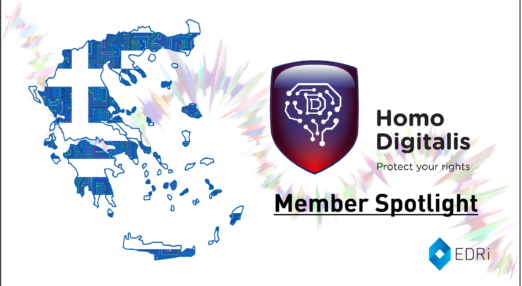
COVID-Tech: COVID-19 opens the way for the use of police drones in Greece
In EDRi’s series on COVID-19, COVIDTech, we explore the critical principles for protecting fundamental rights while curtailing the spread of the virus, as outlined in the EDRi network’s statement on the pandemic.
Read more
-

COVID-Tech: the sinister consequences of immunity passports
In EDRi’s series on COVID-19, COVIDTech, we explore the critical principles for protecting fundamental rights while curtailing the spread of the virus, as outlined in the EDRi network’s statement on the pandemic.
Read more
-
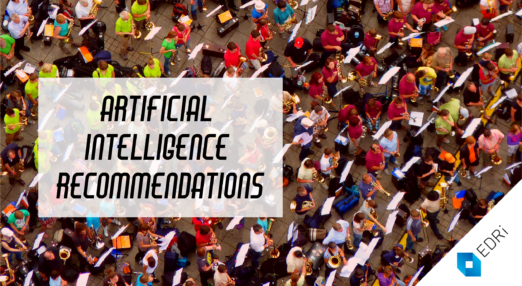
Can the EU make AI “trustworthy”? No – but they can make it just
European Digital Rights (EDRi) submitted its answer to the European Commission’s consultation on the AI White Paper.
Read more
-
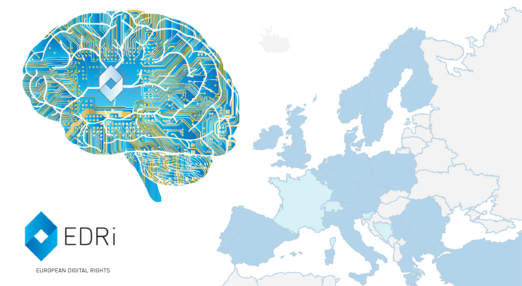
More than the sum of our parts: a strategy for the EDRi Network
It took over a year. From an EDRi members’ survey in early 2019 to the vote by the (online) General Assembly of members at the end of April 2020. In those months we held workshops, webinars, calls, several rounds of comments, draft iterations and about 50 consultations.
Read more
-
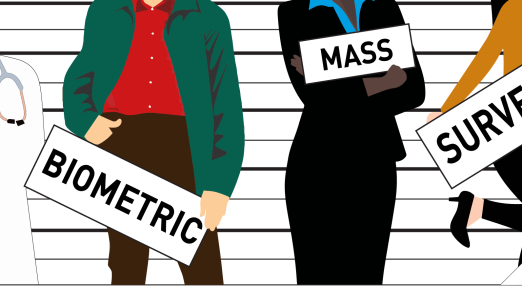
Ban biometric mass surveillance!
44 civil society organisations call for a ban on biometric mass surveillance in EDRi's new paper, "Ban Biometric Mass Surveillance: A set of fundamental rights demands for the European Commission and EU Member States"
Read more
-
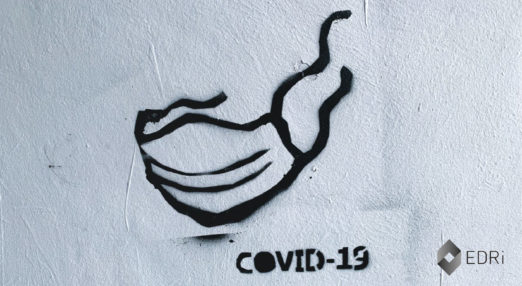
Why COVID-19 is a Crisis for Digital Rights
The COVID-19 pandemic has triggered an equally urgent digital rights crisis. New measures being hurried in to curb the spread of the virus, from “biosurveillance” and online tracking to censorship, are potentially as world-changing as the disease itself.
Read more
-

COVID-19: A Commission hitchhiker’s tech guide to the App Store
How's does the European Commission's toolbox and data protection guidelines fit with the EDRi network's take?
Read more
-
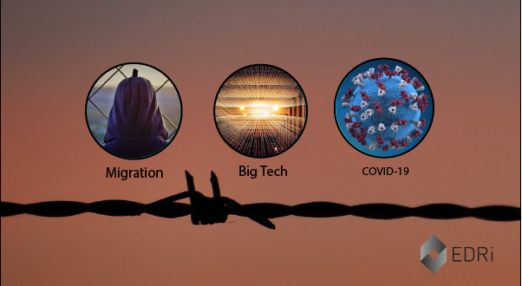
Technology, migration, and illness in the times of COVID-19
In our ongoing work on technology and migration, we examine the impacts of the current COVID-19 pandemic on the rights of people on the move and the increasingly worrying use of surveillance technology and AI at the border and beyond.
Read more
-

COVID-Tech: Emergency responses to COVID-19 must not extend beyond the crisis
In EDRi's new series on COVID-19, we will explore the critical principles for protecting fundamental rights while curtailing the spread of the virus, as outlined in the EDRi network's statement on the virus. Each post in this series will tackle a specific issue at the intersection of digital rights and the global pandemic in order to explore broader questions about how to protect fundamental rights in a time of crisis.
Read more
